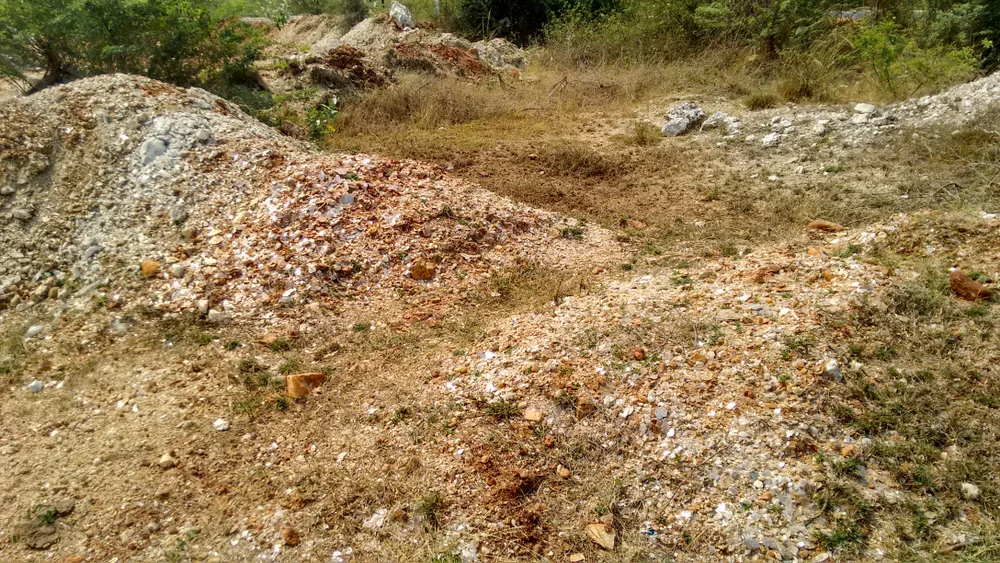
Mica is a class of silicate minerals that are physically and chemically similar in a layered structure. They possess excellent properties for thermal and electrical resistance, therefore being ideal for high temperature insulation solutions. Mica is mined in over 35 countries, with India and Madagascar being the largest sources, followed by China and Brazil. Mica plays a crucial role in various industries, from cosmetics to electronics. All of our products contain mica, the majority of which is mined in very poor countries by artisanal miners living in very poor conditions. Due to these circumstances, ensuring sustainably sourced mica becomes much more significant.
Challenges of Mica Mining
Mica mining is labour-intensive with a tarnished history, where it has been carried out by vulnerable individuals in economically disadvantaged regions. Illegal mining in particular leads to the exacerbation of issues including exploitation, inadequate wages, and unsafe working conditions. The industrial focus has to be working in coalition to improve these conditions for all parties in the mica supply chain. This is the primary mission of the Responsible Mica Initiative
Mining is a process that comes with inherent environmental risks including habitat destruction, pollution, soil erosion and harm to biodiversity. Fortunately, mining practices have drastically improved over time, as the laws and regulations around the environment and labour conditions have continued to tighten down on bad practices. Furthermore, the methods used to extract raw materials such as mica are continuing to improve in efficiency and disruptiveness.
As a responsible industrial insulation mica supplier, we are committed to supporting ethical sourcing while providing high-quality mica solutions for industrial applications.
Responsible Mica Initiative
Recognising the urgency to address these environmental and social challenges, the Responsible Mica Initiative (RMI) was established in 2017. It comprises multiple organisations who are dedicated to establishing a fair, responsible, and sustainable extraction of mica. RMI’s ultimate goal is to eliminate unacceptable working conditions and eradicate child labour from the mica industry by 2030.
The Responsible Mica Initiative has made significant strides in transforming the mica industry. Membership growth has increased each year, currently sitting at over 90 members from a range of industries. RMI has also implemented programs in 130 villages, benefiting over 9,000 households. These programs include free treatment with local health insurance and offering valuable scholarships. Furthermore, RMI collaborates with eight Indian NGO partners to implement Community Empowerment Programs, fostering sustainable development in mica mining regions.
RMI Annual Report
In 2022, there were multiple achievements made by the RMI, where major steps were taken to further develop the necessary workplace standards, community welfare and legal frameworks. Responsible workplace standards are becoming achievable thanks to numerous training programs, both in-person and online, and the deployment of a blockchain-based traceability platform that was made available to all members. This platform monitors mica processing units and allows for key indicators to be measured and calculated in order to enable sustainable performance of their mica supply chains.
Community Empowerment Programs (CEP) were established to provide local communities the necessary resources and support to not only maintain, but improve their wellbeing and lifestyle. There are now 180 villages benefitting from the CEP, where 50 new villages have been added. The programs have helped to get households enrolled in government insurance programs, as well as ensure families receive financial and technical support to sustain their livelihoods. Health and education are also key to the CEP, with over 60 health camps set up to provide suitable medical services for those requiring it, and 93% to 96% of children in villages covered by CEP successfully enrolled in school.
Legal frameworks were developed via a range of methods and opportunities. From creating an economic model of the mica supply chain to assess the impact of costs related to mica mining, to establishing a strategic partnership with the ILO Asia Regional Child Labour (ARC). They also pushed the cause and attended various international supply chain and human rights events, as well as speaking on human rights related podcasts. The 2022 Annual Report containing a full breakdown of the above information can be found here.
Elmelin & Sustainably Sourced Mica
As manufacturers continue to use mica as a raw material, it is essential to ensure our supply chains are fully compliant and responsible. This involves understanding the sources of the mica we use, verifying their legality, and maintaining close relationships with our suppliers. At Elmelin, we recognise the importance of sustainably sourced mica and continue to invest in minimising our environmental impact.
Conclusion
Sustainably sourced mica is not only crucial for the environment but also for the well-being of those involved in the mica industry. The Responsible Mica Initiative’s collective efforts demonstrate the commitment to establishing a fair and responsible mica supply chain. By legalising and regulating mica mines, improving working conditions, and prioritising child protection, the likelihood of ensuring a sustainable future for mica mining becomes increasingly realistic.
Get in touch to find out more about our work and the sustainable solutions we provide for a range of industries.
